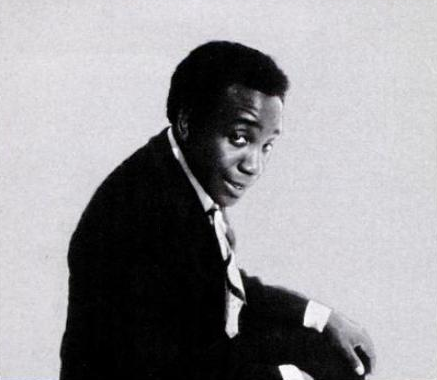
Curtis Mayfield (June 3, 1942 – December 26, 1999) was an American soul, R&B, and funk singer, songwriter, and record producer. He achieved success with The Impressions during the Civil Rights Movement of the 1960s and recorded the soundtrack to the blaxploitation film Super Fly, Mayfield is regarded as a pioneer of funk and of politically conscious African-American music. He was also a multi-instrumentalist who played the guitar, bass, piano, saxophone, and drums. Mayfield is a winner of both the Grammy Legend Award (in 1994) and the Grammy Lifetime Achievement Award (in 1995), and he was a double inductee into The Rock and Roll Hall of Fame, inducted as a member of The Impressions into The Rock and Roll Hall of Fame in 1991, and again in 1999 as a solo artist. He is also a two-time Grammy Hall of Fame inductee.
Early years and The Impressions
Born on June 3, 1942 in Chicago, Illinois, Curtis Mayfield was the son of Marion Washington and Curtis Mayfield aka Kenneth Washington. Mayfield’s father left the family when Mayfield was five and his mother moved Curtis and his siblings into various Chicago projects before settling at the Cabrini–Green projects when Mayfield reached his teenage years. Mayfield attended Wells Community Academy High School. He dropped out of high school early to become lead singer and songwriter for The Impressions, then went on to a successful solo career. Perhaps most notably, Mayfield was among the first of a new wave of mainstream African-American R&B performing artists and composers injecting social commentary into their work. This “message music” became extremely popular during the 1960s and 1970s.
Two significant characteristics distinguish Mayfield’s sound. First, he taught himself how to play guitar, tuning it to the black keys of the piano, thus giving him an open F-sharp tuning—F#, A#, C#, F#, A#, F#—that he used throughout his career. Second, he primarily sang in falsetto register, adding another flavor to his music. This was not unique in itself, but most singers sing primarily in the modal register.
Mayfield’s career began in 1956 when he joined The Roosters with Arthur and Richard Brooks and Jerry Butler. Two years later The Roosters, now including also Sam Gooden, became The Impressions. The band had one big hit with “For Your Precious Love”. After Butler left the group and was replaced with Fred Cash, (a returning original Roosters member), Mayfield became lead singer, frequently composing for the band, starting with “Gypsy Woman“, a Top 20 Pop hit. Their hit “Amen,” (Top 10), an updated version of an old gospel tune, was included in the soundtrack of the 1963 MGM film Lilies of the Field, which starred Sidney Poitier. The Impressions reached the height of their popularity in the mid-to-late-’60s with a string of Mayfield compositions that included “Keep on Pushing,” “People Get Ready“, “It’s All Right” (Top 10), the uptempo “Talking about My Baby”(Top 20), “Woman’s Got Soul”, “Choice of Colors,”(Top 20), “Fool For You,” “This is My Country” and “Check Out Your Mind.” Mayfield had written much of the soundtrack of the civil rights movement in the early 1960s, but by the end of the decade he was a pioneering voice in the black pride movement along with James Brown and Sly Stone. Mayfield’s “We’re a Winner“, a Number 1 soul hit which also reached the Billboard pop Top 20, became an anthem of the black power and black pride movements when it was released in late 1967, much as his earlier “Keep on Pushing” (whose title is quoted in the lyrics of “We’re a Winner” and also in “Move On Up“) had been an anthem for Martin Luther King, Jr. and the Civil Rights Movement.
Mayfield was a prolific songwriter in Chicago even outside his work for The Impressions, writing and producing scores of hits for many other artists. He also owned the Mayfield and Windy C labels which were distributed by Cameo-Parkway, and was a partner in the Curtom (first independent, then distributed by Buddah then Warner Bros and finally RSO) and Thomas labels (first independent, then distributed by Atlantic, then independent again and finally Buddah).
Among Mayfield’s greatest songwriting successes were three hits for Jerry Butler on Vee Jay. His harmony vocals are very prominent (“He Will Break Your Heart”, “Find Another Girl” and “I’m A-Tellin’ You”). He also had great success writing and arranging Jan Bradley’s “Mama Didn’t Lie”. Starting in 1963, he was heavily involving in writing and arranging for OKeh Records (with Carl Davis producing), which included hits by Major Lance, Billy Butler and The Artistics. This arrangement ran through 1965.
Solo career
In 1970, Curtis Mayfield left The Impressions and began a solo career, founding the independent record label Curtom Records. Curtom went on to release most of Mayfield’s landmark 1970s records, as well as records by the Impressions, Leroy Hutson, The Staple Singers, Mavis Staples, and Baby Huey and the Babysitters, a group which at the time included Chaka Khan. Many of these records were also produced by Mayfield.
The commercial and critical peak of his solo career came with his music Record album Super Fly, the soundtrack to the blaxploitation film of the same name, and one of the most influential albums in African-American history. Unlike the soundtracks to other blaxploitation films (most notably Isaac Hayes‘ score for Shaft), which glorified the ghetto excesses of the characters, Mayfield’s lyrics consisted of hard-hitting commentary on the state of affairs in black, urban ghettos at the time, as well as direct criticisms of several characters in the film. Bob Donat wrote in Rolling Stone Magazine in 1972 that while the film’s message “was diluted by schizoid cross-purposes” because it “glamorizes machismo-cocaine consciousness… the anti-drug message on [Mayfield’s soundtrack] is far stronger and more definite than in the film.” Along with Marvin Gaye‘s What’s Going On and Stevie Wonder‘s Innervisions, this album ushered in a new socially conscious, funky style of popular soul music. He was dubbed ‘The Gentle Genius’ to reflect his outstanding and innovative musical output with the constant presence of his soft yet insistent vocals. The single releases “Freddie’s Dead” and “Super Fly” both sold over one million copies each, and were awarded gold discs by the R.I.A.A.
Super Fly brought success that resulted in Curtis Mayfield being tapped for additional soundtracks, some of which he wrote and produced while having others perform the vocals. Gladys Knight & the Pips recorded Mayfield’s soundtrack for Claudine in 1974, while Aretha Franklin recorded the soundtrack for Sparkle in 1976. Mayfield also worked with The Staple Singers on the soundtrack for the 1975 film Let’s Do It Again, and teamed up with Mavis Staples exclusively on the 1977 film soundtrack A Piece of the Action (both movies were part of a trilogy of films that featured the acting and comedic exploits of Bill Cosby and Sidney Poitier and were directed by Poitier). While Mayfield felt he was in danger of overreaching himself being writer, producer, performer, arranger and businessman, he nonetheless seemed to cope and still produce a remarkable output.
One of Curtis Mayfield’s most successful funk-disco meldings was the 1977 hit “Do Do Wap is Strong in Here” from his soundtrack to the Robert M. Young film of Miguel Piñero‘s play Short Eyes. In his 2003 biography of Curtis Mayfield, titled “People Never Give Up”, author Peter Burns noted that Curtis has 140 songs in the Curtom vaults. Burns indicated that the songs maybe already completed or in the stages of completion, so that they could then be released commercially. These recordings include “The Great Escape”, “In The News”, “Turn up the Radio”, “Whats The Situation?” and one recording labelled “Curtis at Montreux Jazz Festival 87”. Two other albums, featuring Curtis Mayfield present in the Curtom vaults and as yet unissued are, a 1982/83 live recording titled “25th Silver Anniversary” (which features performances by Curtis, The Impressions and Jerry Butler) and a live performance, recorded in September 1966 by The Impressions titled ‘Live at the Club Chicago’.
In later years, Mayfield’s music would be included in the movies I’m Gonna Git You Sucka, Hollywood Shuffle, Friday (though not on the soundtrack), and Short Eyes (1977) where he had a cameo role as a prisoner.
Social activism
Curtis Mayfield was known for introducing social consciousness into African American music as well as R&B and wrote songs protesting social and political inequality. He wrote and recorded the soundtrack to the blaxploitation film, Super Fly with The Impressions. Super Fly is regarded as an all-time great body of work that influenced many and truly invented a new style of modern black music. Just as the Civil Rights Act passed into law in 1964, his group The Impressions produced music that became the soundtrack to a summer of revolution. Black students sang their songs as they marched to jail or protested outside their universities, while King often marched to the peaceful sounds of Mayfield’s Keep On Pushing, People Get Ready and We’re A Winner. Mayfield had quickly become a civil rights hero.
Curtis Mayfield, along with several other soul and funk musicians, spread messages of hope in the face of oppression, pride in being a member of the black race and gave courage to a generation who were demanding their human rights. Mayfield has been compared to Martin Luther King Jr arguably for making a greater lasting impact in the civil rights struggle with his music. By the end of the decade he was a pioneering voice in the black pride movement along with James Brown and Sly Stone. Paving the way for a future generation of rebel thinkers, Mayfield paid the price, artistically and commercially, for his politically charged music. Irrespective of the persistent radio bans and loss of revenue, Mayfield continued his quest for equality right until his death. His lyrics on racial injustice, poverty and drugs became the poetry for a generation. Mayfield was also a descriptive social commentator. As the influx of drugs ravaged through black America in the late 1960s and 1970s his bittersweet descriptions of the ghetto would serve as warnings to the impressionable. Determined to warn all about the perils of drugs, “Freddie’s Dead” is a graphic tale of street life. In 1965, another gospel song emerged – “People Get Ready” by Mayfield and the Impressions. “Keep On Pushing” and “People Get Ready” were two songs that became embedded in the national movement for civil and social rights, heard at all the rallies and marches, songs-as-inspiration. His song “People Get Ready” was written in the year after the march on Washington’s. For many, it captured the spirit of the march—the song reaches across racial and religious lines to offer a message of redemption and forgiveness.
Mayfield produced many of the songs that helped shape and define the Black Power Movement, and exemplify the workings of music in the BPM and their 1967 song “We’re a Winner” can be seen as one defining element of the movement. Mayfield’s uncompromising look at racism and his calls for black pride and economic determinism place him firmly within the BPM. Significantly, when he and his friend Eddie Thomas founded the Curtom record label to protect black artists from the exploitation that they often suffered with other record labels, not only was the BPM ideal of black entrepreneurship realized but also the BPM had a record label that was synonymous with Black Power. Empowered in part by the ownership of his own label and in part by his affiliations with other artists, Mayfield presented a crucial look at American racism in “This is My Country” with lyrics that spoke of ‘three hundred years of slave driving, sweat and welts on my back’. ‘We’re a Winner’ conveys the essential ideological message of the BPM. By the time We’re a Winner was recorded, the BPM was a powerful, complex movement that incorporated politics, capitalism, internationalism and the arts that had its roots in the social circumstances and political opportunities of the post-World War II era. The title itself was a strong statement against inferiority complexes historically propagated among blacks by power brokers representing white social and cultural values, but the lyrics offer more than a critique – they offer an affirmative view of black culture that could foster mobilization and sustain political action under even threatening circumstances. Music, as exemplified by Curtis Mayfield, was to foster mobilization by presenting the political ideology of Black Power that enforced notions of black pride, but it also offered a venue for the creation of black culture that was not defined by the dominant white culture.
Later years and death
Curtis Mayfield was active throughout the 1970s and 1980s, though he had a somewhat lower public profile in the 1980s. On August 13, 1990, Mayfield was paralyzed from the neck down after stage lighting equipment fell on him at an outdoor concert at Wingate Field in Flatbush, Brooklyn, New York. He was unable to play guitar, but he wrote, sang, and directed the recording of his last album, New World Order. Mayfield’s vocals were painstakingly recorded, usually line-by-line while lying on his back.
Curtis Mayfield received the Grammy Lifetime Achievement Award in 1995. In February 1998, he had to have his right leg amputated owing to diabetes. Mayfield was inducted into the Rock & Roll Hall of Fame on March 15, 1999. Health reasons prevented him from attending the ceremony, which included fellow inductees Paul McCartney, Billy Joel, Bruce Springsteen, Dusty Springfield, George Martin, and 1970s Curtom signee and labelmate The Staple Singers.
His last appearance on record was with the group Bran Van 3000 on the song “Astounded” for their album Discosis, recorded just before his death and released in 2001.
Curtis Mayfield died from diabetes on December 26, 1999 at the North Fulton Regional Hospital in Roswell, Georgia; his health having steadily declined following his paralysis.
Awards and legacy
Mayfield has left a remarkable legacy for his introduction of social consciousness into R&B and for pioneering the funk style. Many of his recordings with the Impressions became anthems of the Civil Rights Movement in the 1960s, and his most famous album, Super Fly, is regarded as an all-time great that influenced many and truly invented a new style of modern black music.
- Mayfield’s solo Super Fly is ranked No. #69 on Rolling Stone’s list of the 500 Greatest Albums of All Time.
- The Impressions’ album/CD The Anthology 1961–1977 is ranked at No. 179 on Rolling Stone Magazine’s list of the 500 Greatest Albums of all time.
- As a member of The Impressions, he was posthumously inducted into the Vocal Group Hall of Fame in 2003.
- Along with his group The Impressions, he was inducted into the Rock and Roll Hall of Fame in 1991.
- In 1999, he was inducted into The Rock and Roll Hall of Fame as a solo artist making him one of the few artists to become double inductees.
- In 1999, he found himself inducted into the Songwriters Hall of Fame just prior to his death.
- He was a winner of the prestigious Grammy Legend Award in 1994.
- He received the Grammy Lifetime Achievement Award in 1995.
- He is a 2-time Grammy Hall of Fame inductee: for the song People Get Ready with The Impressions, and for the award-winning album Super Fly as a solo artist.
- The Impressions’ 1965 hit song, “People Get Ready”, composed by Mayfield, has been chosen as one of the Top 10 Best Songs Of All Time by a panel of 20 top industry songwriters and producers, including Paul McCartney, Brian Wilson, Hal David, and others, as reported to Britain’s Mojo music magazine.
- The Impressions hits, People Get Ready and For Your Precious Love are both ranked on Rolling Stone Magazine’s list of the 500 Greatest Songs of All Time, as No. 24 and No. 327 respectively.
- In 2004, Rolling Stone magazine ranked Mayfield No. 98 on their list of the 100 Greatest Artists of All Time.
- Curtis Mayfield’s song “P.S. I Love You” was sampled at the end of 2007 film, Superbad.
- Mayfield is ranked No. 34 on Rolling Stone Magazine’s the list of the 100 Greatest Guitarists of All Time.
- Mayfield is currently nominated on the 56th Grammy Awards for Song Of The Year with “Same Love“, performed by Macklemore & Ryan Le
- wis featuring Mary Lambert, due to the duo sampling the piano from “People Get Ready”.
Curtis Mayfield Filmography
- Movin’ On Up– “The Music and Message of Curtis Mayfield and The Impressions” (DVD-2008)
- Super Fly (1972) as himself
- Short Eyes (1977) (Role – Pappy)
- Sgt. Pepper’s Lonely Hearts Club Band (film) (1978) (Role – Guest)
- Curtis Mayfield Live at Ronnie Scotts – issued on VHS and DVD (2002)



